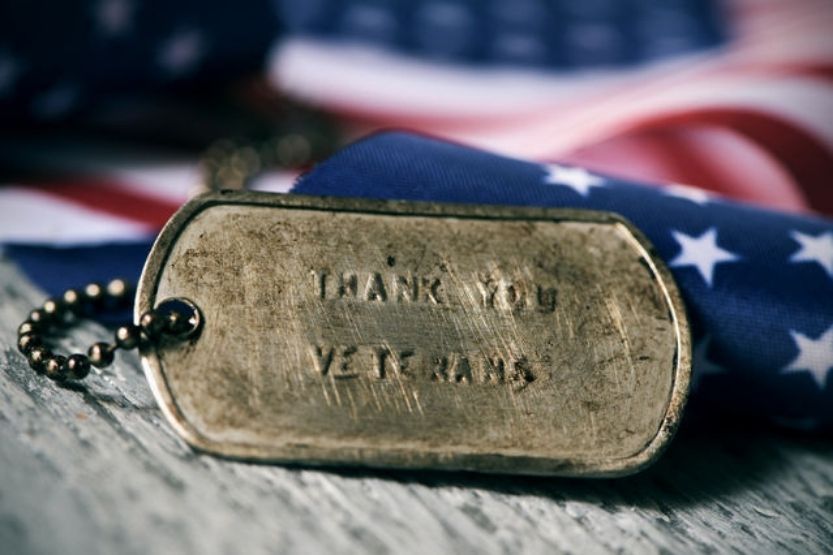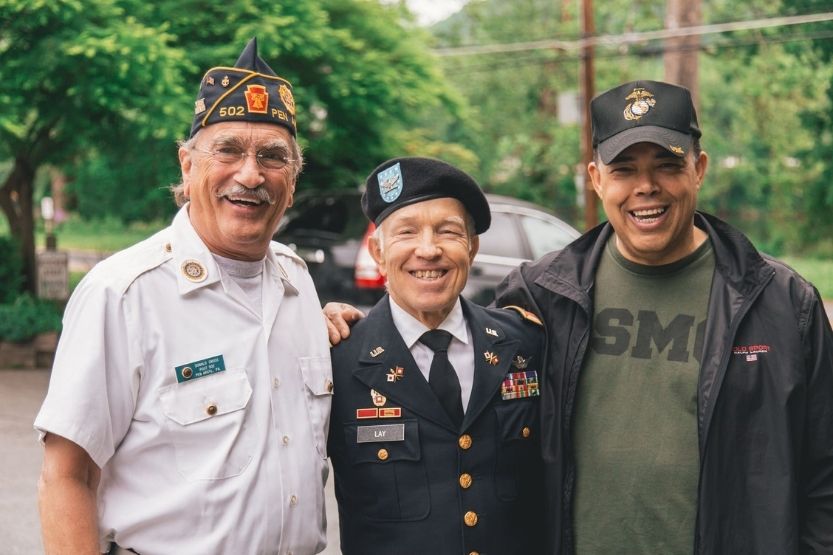As a veteran, you must have heard many times “thank you for your service.” This is a great thing to hear, but it can be difficult to know the best way to respond. How to respond to “thank you for your service”?
The most common way to respond to “thank you for your service” is by saying “thank you.” You can also say “thank you for your support” or “welcome.” Three other great responses are as follows:
- “You don’t have to thank me, but I appreciate your support.”
- “Thank you for your continued support.”
- “I’m proud to serve.”
In some instances, when a veteran or military is disabled, it could be uncomfortable for other people to say, “thank you for your service.” Likewise, if you’re in that position, you may feel awkward and not know how to respond.
In informal settings and when family or friends say: “thank you for your service,” simple answers could suffice.
There are various ways to respond to this statement, depending on your relationship with the speaker and the setting.
Read on to learn more about how to respond to “thank you for your service” in an informal setting or formal setting.
How to Respond to “Thank You for Your Service”?
Three great responses to “thank you for your service” are as follows:
- “You don’t have to thank me, but I appreciate your support.”
- “Thank you for your continued support.”
- “I’m proud to serve.”
The simplest way to respond is by saying “thank you.”
When people say “thank you for your service,” they recognize your value as a significant person who contributed towards making the country safe from aggression and invasion.
If you’re in military service or a veteran, hearing this statement should give you pride and honor.
Nevertheless, you must know what to say on different occasions and how to say it to other people with whom you’re well-acquainted or not.

How to Respond to “Thank You for Your Service” in Informal Settings?
During informal events, the response to “thank you for your service” may be different from formal events.
Informal settings include family gatherings, meeting with friends, and outdoor or indoor recreational happenings.
Informal responses to “thank you for your service” are as follows:
- “Appreciate you saying it.”
- “You bet!”
- “I couldn’t do it without you paying your taxes.” (You can say this with a wink or smile)
- “You’re welcome.”
- “No big deal, welcome.”
- “Alright, you owe me one.”
- “Proud to serve.”
How to Respond to “Thank You for Your Service” in Formal Settings?
Formal settings require a more formal response to “thank you for your service.” I assume you may not be so familiar with people you meet during these events, so your tone should also be formal.
Examples of these formal settings are: “Tributes to Veterans” or an event where you’re honored or introduced to political dignitaries or new acquaintances, or the public.
While replying, you can smile or give a handshake or bow to indicate you acknowledge their statement. Here are some replies you can use during these events. Feel free to use them whenever it’s appropriate:
- “You’re welcome; it’s my honor to have served.”
- “I’m proud to serve, thank you.”
- “I appreciate your gratitude. Thank you for your support.”
- “Welcome, it has been my privilege to serve.”
- “Thank you for your support. Your gratitude means a great deal for us veterans.”
- “I’m glad for the opportunity to serve. You’re welcome.”
- “I’m touched by your gratitude. I’ll continue to work hard.”
- “You’re welcome. Thank you for your kind words.”
- “It’s a great opportunity to serve. I’ve broadened my horizons because of it.”
- “It’s a great pleasure to serve our people and country.”
- “Thank you, too, for supporting as the way you do.”
- “Coming from you, it means so much to me. Thank you.”
- “I sincerely appreciate you for saying that. It’s one tough job, but we’re working hard because of people like you.”
How to Respond to “Thank You for Your Service” to Family Members and Close Friends?
You could use the responses during informal occasions. You may want to add some terms of endearment for them. Examples include:
- “You’re welcome, bro.”
- “Proud to serve, honey.”
- “Sweetie, coming from you, it means a lot to me.”
- “Sure, buddy. Anytime.”
- “Mate, no big deal, welcome.”
- “Sure, thanks.”
- “No problem. Happy to serve.”
- “It’s alright. I’m glad I did, or I wouldn’t have met you.”

How to Respond to “Thank You for Your Service” to Strangers and Acquaintances?
How to respond to “thank you for your help” addressed to you by strangers or acquaintances? Your responses to acquaintances and random strangers thanking you anywhere would be the same as those during formal occasions. If the person is older than you and is an important political figure, such as a senator, or the president, himself, you may want to add, sir or madam, as the case may be.
Naturally, it would be best if you saluted military men saying thank you unless they’re close friends.
How to Respond to “Thank You for Your Service” via Email or Text?
Again, your response would depend on whether the person is a family member, a close friend, or an acquaintance.
With emails, you can reply lengthily as you have enough space and time to write your response. Here’s an example of a response to an acquaintance.
For emails for your family and close friends, you could use the examples listed under responses to family members and close friends.
For acquaintances or people you’re not close to, you can use the examples listed under strangers and acquaintances. Below are examples you could use to reply to “thank you for your service” emails.
Example 1
“Dear ___________,
I received the “thank you” letter this morning, and your gratitude deeply honors me. I want you to know that it has been a privilege to serve our country.
I am sure you have been diligently serving our country, too, through your hard work in your field of expertise. Thank you, as well.
Together, we can do our best to serve our fellow citizens and our country.
Sincerely,
____________ “
Example 2
“To: _______________________
From:_____________________
I appreciate your letter of thanks, and I’m honored that you consider me significant in making this country safe for everyone.
I’m inspired to keep on serving because people like you inspire me to do better. You have motivated me more to do my work with pride and love.
I hope you and your family will always be safe.”
You can choose from any of the samples listed above based on your relationship with the person for text messages.
How to Respond to “Thank You for Your Service” via E-Cards?
If you have been thanked online, you can reply using e-Cards. The advantage of e-Cards is that you can customize them easily by infusing color or graphics to create an incredible presentation that embodies how you feel. You don’t need to be tech-savvy to design your own ingenious cards.
These websites offer free e-Cards for all occasions: Blue Mountain e-cards and 123 Greetings. Go ahead and browse the cards that express your preferences and thoughts, personalize them, and create your own card.
We’ve answered the questions “how do you respond to thank you for your service – in an informal setting?; and “how to respond to thank you for your service – in a formal setting.” The replies could somewhat vary based on the setting and the person you’re replying to.
The essence of your response is the same: you appreciate their gratitude, you’re grateful for their support, and you’re proud to have served.
See below for tips on how to respond to “thank you for your service.”
Tips on Responding to “Thank You for Your Service”
1. Always Smile When Acknowledging People’s Gratitude
When greeted in person, always smile to put the other person at ease. A smile can break the ice of an awkward situation. Smile genuinely, and your sincerity would shine through.
Avoid smiling half-heartedly, as this can appear as a grimace. Be natural, and feel truly happy for their acknowledgment of your service.
2. Focus on the Person When Talking to Them
You have to listen to the person attentively by looking at them in the eye and observing their non-verbal cues. Through careful observation, you would know if the person said it sarcastically or honestly.
No matter what the person’s purpose is, you still have to respond respectfully and sincerely. Don’t allow the other individual’s indifferent behavior to change your good character.

3. Don’t Use Informal Language When Unsure of How to Respond
If you’re unsure how to respond, it indicates that you don’t know the other person well. Thus, you have to use formal language. Playing it safe is best because you might regret it later when it turns out that the person is a dignitary.
Treat every well-wisher respectfully and sincerely, and you can never go wrong. The Golden Rule applies in any situation. “Do unto others what you like others do unto you.”
4. Say “Thank You” When Unsure of What to Say
When you’re groping for words to express yourself, say, “thank you.” This is a sufficient and simple answer that’s acceptable for both acquaintances and people close to you. This reply is also suitable for formal and informal occasions.
You can nod and smile to convey your sincere appreciation. Don’t feel arrogant and think that your duty is more significant than that of others. It would be best if you thanked them, too, for inspiring you to go on; and for doing their own duties in their respective fields to serve the country. You’re not the only one working hard; everyone is doing so. Therefore, everyone deserves a “thank you” note.
5. Avoid Using Emojis, GIFs, or Memes in Your Emails of Cards
Unless you’re familiar with the recipient, avoid using memes, emojis, emoticons, GIFs in your emails, or cards. These items have no place in formal settings. But, of course, with family members and close friends, you can play with various emojis available. They’re fun to use to express your emotions.
Nonetheless, using related photos and images could emphasize the concept of your message. But don’t overdo it. One or two photos that include the recipient are enough to show that you acknowledge their appreciation of your hard work.
If you don’t have photos of you and the recipient because there was no event, then it’s enough to send your email or card without photos. You can personalize the card beautifully, even without photos.
6. Be Aware of Your Body Language
Your mannerisms and body language can speak volumes of how you feel. So, be careful to show only positive body language. If you have other problems, leave them behind, and for the moment, be happy for the appreciation people offer you.
This is most especially applicable during person-to-person interactions. For emails and cards, you only have to be sincere and original in your message.
You may be tempted to copy-paste, but don’t. Imagine how the recipients would react when they would later read an exact copy of the message you have sent them. You didn’t even bother to correct the wrong punctuation mark. Wouldn’t that be so embarrassing?
Crossing your arm, making faces, scratching your head, or playing with your hair or fingers relay disinterest in the person’s message, so refrain from doing these mannerisms.
7. Take Advantage of Your Social Media Account
If your intended recipient has a social media account and is connected, you can use this medium to express your appreciation.
One example is using Facebook to create an ecard and then post it on the recipient’s wall or send it through a private message. Posting your message and screening who can view it is a good idea.
However, sending your message through direct messaging is more private, intimate, and convenient.
Conclusion – How Do You Respond to “Thank You for Your Service”?
When someone says “thank you for your service,” you can respond with a simple “thank you for your support,” “thank you,” or “welcome.” Some other good responses to “thank you for your service” are:
- “I’m proud to serve.”
- “You don’t have to thank me, but I appreciate your support.”
- “Thank you for your continued support.”
You could respond in various ways to this statement, depending on your relationship with the speaker. The setting and the event would also influence how you should respond to the message.
Refer to the other responses above and apply them according to your circumstances. You’re the best judge of whether you should use that message or not.

![FlexNet Licensing Service [What Is It and How Does It Work?] flexnet licensing service](https://howchimp.com/wp-content/uploads/2021/04/Flexnet-licensing-service-300x200.jpg)
![Oh I See [What Does It Mean and How to Respond?] oh i see](https://howchimp.com/wp-content/uploads/2021/04/oh-i-see-300x200.jpg)
![How to Respond to Thank You [With Examples] how to respond to thank you](https://howchimp.com/wp-content/uploads/2021/04/how-to-respond-to-thank-you-300x200.jpg)
![How to Respond to a Job Offer? [Email or Verbal] how to respond to a job offer](https://howchimp.com/wp-content/uploads/2021/04/how-to-respond-to-a-job-offer-300x200.jpg)
![Read more about the article Does Putting Your Phone in Rice Work? [Drying a Wet Phone]](https://howchimp.com/wp-content/uploads/2020/11/drying-phone-in-rice-300x200.jpg)

